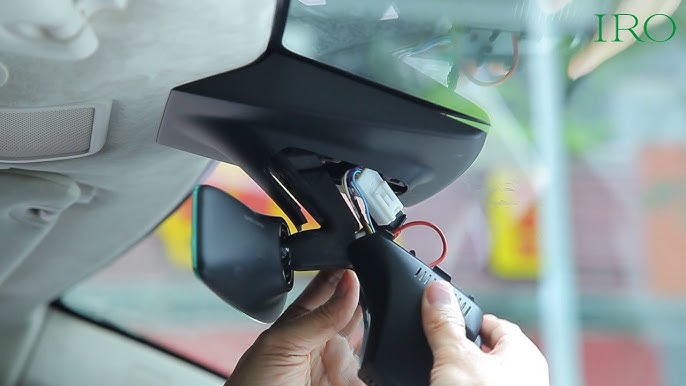Dash cams have become increasingly popular for drivers across the United States, offering a valuable tool for capturing unexpected events on the road. For those considering a dash cam in Vermont, understanding the state’s regulations is crucial to ensure legal compliance. This comprehensive guide will delve into everything you need to know about dash cam usage in Vermont, including:
- Legal Status of Dash Cams
- Proper Mounting Locations
- Privacy Considerations
- Using Dash Cam Footage
- Additional Tips for Vermont Drivers
By familiarizing yourself with these key points, you can leverage the benefits of a dash cam while staying within the legal boundaries set forth by Vermont law.
The Legality of Dash Cams in Vermont
The good news for Vermont drivers is that dash cams are entirely legal within the state. There are no restrictions on the use of dash cams for recording purposes. This allows drivers peace of mind, knowing they can capture evidence in case of accidents, hit-and-run incidents, or other unforeseen situations.
Proper Dash Cam Placement
While Vermont permits dash cams, there are specific regulations regarding their placement on your vehicle’s windshield. This ensures the camera doesn’t obstruct your view while driving. Here’s a breakdown of the approved mounting locations:
- Lower Passenger-Side Corner: This is the most popular placement option. The law permits dash cams up to 4 inches tall and 12 inches long in this area.
- Upper Driver-Side Corner: Alternatively, you can mount your camera on the upper left corner of the windshield, as long as it adheres to the size restriction of 2 inches high and 2.5 inches long.
Privacy Concerns and Dash Cams
While dash cams offer security advantages, privacy considerations are also important. Here’s what you need to be aware of in Vermont:
- One-Party Consent: Vermont follows a one-party consent law regarding audio recordings. This means you can legally record conversations within your vehicle with the consent of at least one person involved in the conversation (yourself).
- Audio Recording Disclosure: It’s considered best practice to inform passengers they are being recorded if you plan to use the audio footage.
- External Audio Recording: Be mindful that recording conversations outside your vehicle, such as with law enforcement officers during a traffic stop, might require informing the other party of the recording.
Using Dash Cam Footage
Dash cam footage can be a valuable asset in various situations. Here are some common scenarios where it can prove beneficial:
- Accident Evidence: In the event of a collision, dash cam footage can provide clear and objective evidence of the events leading up to the accident. This can be crucial for filing insurance claims, disputing fault, or even in legal proceedings.
- Hit-and-Run Incidents: If you are the victim of a hit-and-run, dash cam footage can capture vital details such as the license plate number and description of the fleeing vehicle. This information can significantly aid law enforcement in apprehending the perpetrator.
- False Accusations: In rare cases, you might be falsely accused of a traffic violation. Dash cam footage can serve as strong evidence to clear your name.
- Insurance Fraud: Dash cam footage can help expose staged accidents or other forms of insurance fraud.
Additional Considerations for Vermont Drivers
Here are some additional points to keep in mind when using a dash cam in Vermont:
- Power Source: Ensure your dash cam is properly connected to a power source in your vehicle to avoid missing crucial footage due to a dead battery.
- Storage Capacity: Consider the storage capacity of your dash cam and how long you want to retain footage. Options include memory cards with varying capacities or cloud storage solutions.
- Dash Cam Features: Explore various dash cam features, such as night vision, motion detection, and parking mode, which can provide additional benefits depending on your needs.
- State Law Updates: While Vermont currently allows dash cams, it’s advisable to stay updated on any potential changes to state laws regarding their use.
Conclusion
Dash cams offer a valuable layer of security and peace of mind for Vermont drivers. By understanding the state’s regulations on placement, privacy, and footage usage, you can ensure legal compliance while reaping the benefits of this technology. Remember, a dash cam is just one tool you can utilize for safe driving practices. Always prioritize defensive driving and remain alert on the road.



